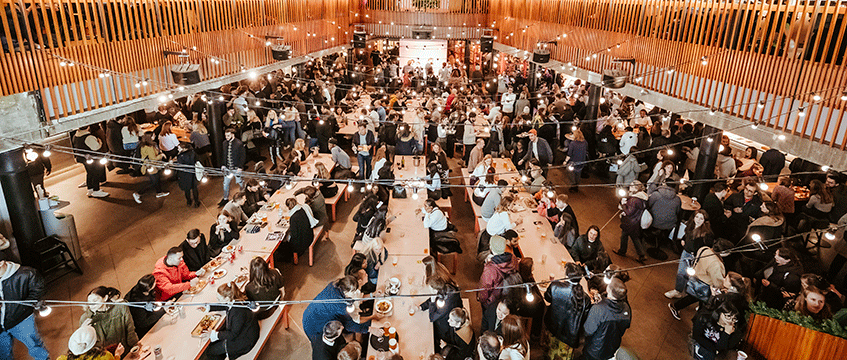UK shows insatiable appetite for food halls
The number of food halls open or planned to open across the UK has more than doubled over the past seven years to 42 – more than in France, Germany and Italy combined.
Cushman & Wakefield’s latest Food Halls of Europe report confirmed the UK remains Europe’s largest market for such ventures by far, with the food hall model expanding well beyond London.
While Altrincham Market House was the only food hall outside of London in 2017, now there are 22 regional food halls either open or planned, including five in Manchester, four in Liverpool, three in Sheffield and two in Birmingham, varying in size from 3,000 sq ft to 11,000 sq ft.
The number of food halls open or planned to open across the UK has more than doubled over the past seven years to 42 – more than in France, Germany and Italy combined.
Cushman & Wakefield’s latest Food Halls of Europe report confirmed the UK remains Europe’s largest market for such ventures by far, with the food hall model expanding well beyond London.
While Altrincham Market House was the only food hall outside of London in 2017, now there are 22 regional food halls either open or planned, including five in Manchester, four in Liverpool, three in Sheffield and two in Birmingham, varying in size from 3,000 sq ft to 11,000 sq ft.
Most have an operator leasing the space from a landlord for an average term of 10-15 years, though in some cases landlords directly deal with food traders. Some have adopted new formats and multi-use models. The 26,910 sq ft Cambridge Street Collective in Sheffield, Europe’s largest purpose-built food hall, is part of a community-focused, council-funded project in the city.
A significant opening this year is Mercato Metropolitano in Ilford, which claims to be London’s first sustainable food hall.
Matt Ashman, head of leisure and restaurants at Cushman & Wakefield, said: “With increased costs, food halls have evolved into social hubs, fostering an environment that encourages socialising and meaningful connections. This shift has resulted in two distinct operator models, curated independents under a brand and operator-owned. Both have led to an increased interest in food halls as a destination for leisure.”
Image from Cushman & Wakefield











